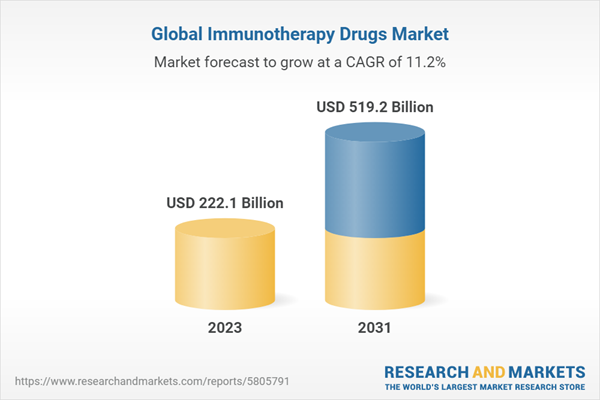Introduction
Immunotherapy drugs, also known as immune checkpoint inhibitors, are a revolutionary class of medications designed to harness the power of the immune system to fight cancer. Unlike traditional cancer treatments such as chemotherapy and radiation, which directly target cancer cells, immunotherapy works by stimulating the body's own immune system to recognize and destroy cancer cells.The immune system has the remarkable ability to detect and eliminate abnormal cells, including cancer cells. However, cancer cells often develop mechanisms to evade the immune system's detection and attack. Immunotherapy drugs work by blocking these mechanisms, allowing the immune system to recognize and target cancer cells effectively.
One of the most significant advancements in immunotherapy is the development of immune checkpoint inhibitors, which target proteins on immune cells or cancer cells that regulate immune response. By blocking these proteins, immune checkpoint inhibitors can unleash the immune system's full potential to attack cancer cells.
Key Trends in the Immunotherapy Drugs Market
Some key trends involved in the immunotherapy drugs market are as follows:- Advancements in Precision Medicine: The field of immunotherapy is witnessing a shift towards precision medicine approaches. Researchers are focusing on identifying specific biomarkers and genetic profiles that can help predict patient response to immunotherapy drugs. This enables healthcare professionals to tailor treatment plans based on individual patient characteristics, improving treatment outcomes and reducing potential side effects
- Combination Therapies: Combination therapies involving immunotherapy drugs and other treatment modalities are becoming increasingly common. By combining immunotherapy with chemotherapy, targeted therapy, or radiation therapy, healthcare providers aim to enhance treatment effectiveness and overcome resistance. These combination approaches have shown promising results in clinical trials and are expected to become more prevalent in the treatment of various cancers
- Expansion of Indications: Initially, immunotherapy drugs were primarily used for the treatment of advanced-stage cancers. However, ongoing research and clinical trials have led to the expansion of indications for immunotherapy. These drugs are now being tested in earlier stages of cancer, as adjuvant or neoadjuvant therapy, and in combination with other standard treatments. This trend opens up new possibilities for the use of immunotherapy in a wider range of cancer types and disease stages
Immunotherapy Drugs Market Segmentations
Market Breakup by Drug Class
- Monoclonal Antibodies
- Adult Vaccines
- Checkpoint Inhibitors
- Interferons Alpha and Beta
- Interleukins
- Other Drugs
Market Breakup by Applications
- Cancer
- Autoimmune and Inflammatory Diseases
- Infectious Diseases
- Others
Market Breakup by Route of Administration
- Oral
- Parenteral
- Others
Market Breakup by End User
- Hospitals
- Specialty Centres
- Clinics
- Others
Market Breakup by Distribution Channel
- Hospital Pharmacy
- Retail Pharmacy
- Online Pharmacy
- Others
Market Breakup by Region
North America
- United States of America
- Canada
Europe
- United Kingdom
- Germany
- France
- Italy
- Others
Asia Pacific
- China
- Japan
- India
- ASEAN
- Australia
- Others
Latin America
- Brazil
- Argentina
- Mexico
- Others
Middle East and Africa
- Saudi Arabia
- United Arab Emirates
- Nigeria
- South Africa
- Others
Immunotherapy Drugs Market Scenario
The global market for immunotherapy drugs is experiencing significant growth and is projected to continue expanding in the coming years. Immunotherapy has emerged as a game-changing approach in cancer treatment, revolutionizing the way we combat the disease. It has shown remarkable efficacy and durable responses in various cancer types, leading to increased adoption and demand for immunotherapy drugs.The market is driven by several factors, including the rising prevalence of cancer worldwide, the need for more effective and targeted treatment options, and the growing understanding of the immune system's role in cancer progression. Additionally, advancements in biotechnology and genomic research have facilitated the development of innovative immunotherapy drugs with improved safety profiles and enhanced therapeutic outcomes
Pharmaceutical companies and biotechnology firms are actively investing in research and development to discover and develop new immunotherapy drugs. They are focusing on expanding the indications for existing drugs and exploring novel immune targets and mechanisms. This continuous pipeline of drug development is expected to drive market growth.
Immunotherapy Drugs Market: Competitor Landscape
The key features of the market report include patent analysis, grants analysis, clinical trials analysis, funding and investment analysis, partnerships, and collaborations analysis by the leading key players. The major companies in the market are as follows:- Abbott
- PerkinElmer Inc
- Illumina, Inc
- QIAGEN
- F. Hoffmann-La Roche Ltd
- Novartis AG
- AstraZeneca
- Pfizer Inc
- Sanofi
- Johnson & Johnson Services, Inc
- AbbVie Inc
- Allergan
- Merck & Co., Inc
- Amgen Inc
- Thermo Fisher Scientific
- Teva Pharmaceutical Industries Ltd
- Takeda Pharmaceutical Company Limited
- GlaxoSmithKline plc
- Lupin Pharmaceuticals, Inc
- Lilly
- Bristol-Myers Squibb Company
Table of Contents
Companies Mentioned
- Abbott
- PerkinElmer Inc.
- Illumina Inc.
- QIAGEN
- F. Hoffmann-La Roche Ltd.
- Novartis AG
- AstraZeneca
- Pfizer Inc.
- Sanofi
- Johnson & Johnson Services Inc.
- AbbVie Inc.
- Allergan
- Merck & Co. Inc.
- Amgen Inc.
- Thermo Fisher Scientific
- Teva Pharmaceutical Industries Ltd.
- Takeda Pharmaceutical Company Limited.
- GlaxoSmithKline plc.
- Lupin Pharmaceuticals Inc.
- Lilly
- Bristol-Myers Squibb Company
- Boehringer Ingelheim International GmbH
Table Information
| Report Attribute | Details |
|---|---|
| No. of Pages | 140 |
| Published | May 2023 |
| Forecast Period | 2023 - 2031 |
| Estimated Market Value ( USD | $ 222.1 Billion |
| Forecasted Market Value ( USD | $ 519.2 Billion |
| Compound Annual Growth Rate | 11.2% |
| Regions Covered | Global |
| No. of Companies Mentioned | 22 |









